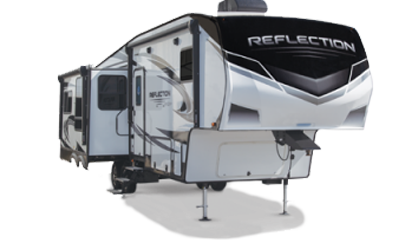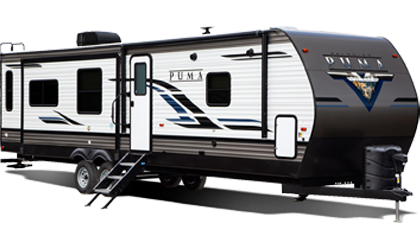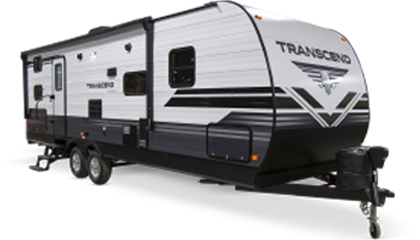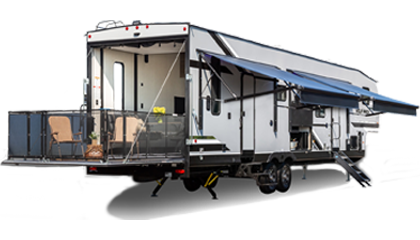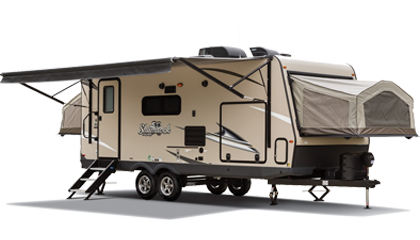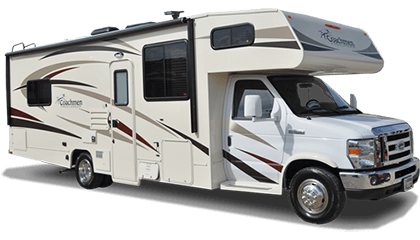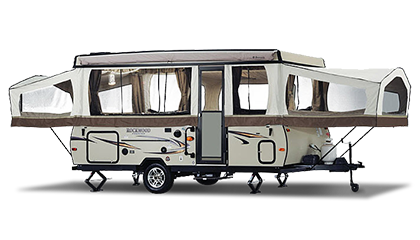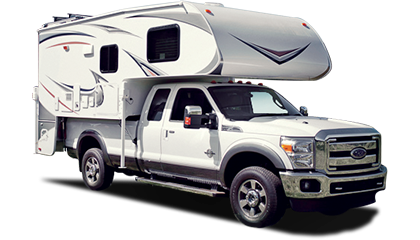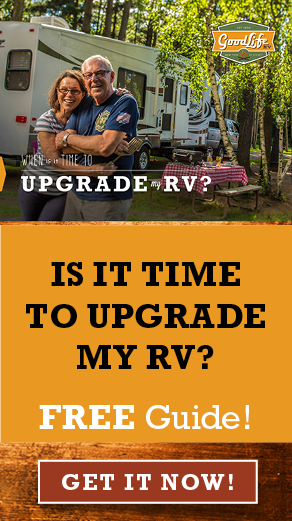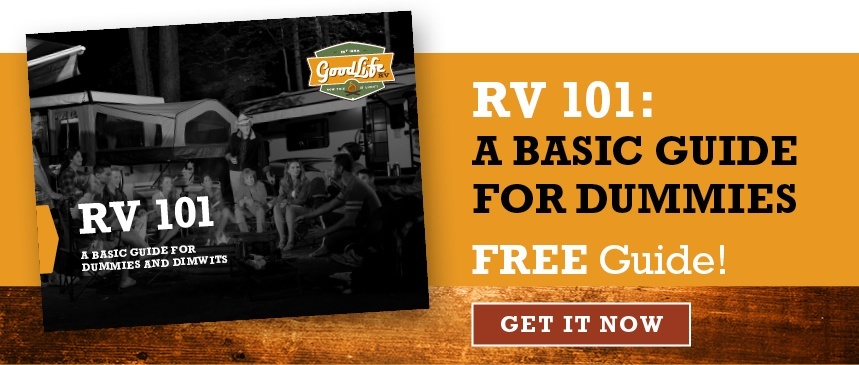Can I Live in My RV Full-Time?

Can you live in your RV full-time? The answer is a definite ‘yes.’ As a matter of fact, next time you pull into your favorite campground, take a look around at some of the sites. Your eyes will be filled with full-timers that make their home in a wide variety of RVs, ranging from smaller travel trailers designed for one person to fully equipped, luxurious fifth wheels fit enough for a small family.
Full-timing is a lifestyle. It’s a lifestyle that many find liberating, but some find to be too much of a difference from their ‘normal’ life. You won’t have your own permanent yard, driveway or mailbox, even, but you will have your home. And since that home is on wheels, you’ll be able to move it when and wherever you want. But, will this be right for you? Here are some of the most common questions we hear on the lot when it comes to deciding if full-time RV living is a good choice for you.
COST
Think about your current bills. They stack up quickly. Living in your RV full-time will simplify this quite a bit. You’ll trade your mortgage payments for RV payments, which will more likely be much cheaper and have shorter terms. The type of campsite you decide to spend your time at will be a factor in how much you spend monthly, too. Common sense dictates here. The more you pay, the more amenities you will probably have. Most campsites will offer electricity, sewer and water. Others offer cable tv, wireless internet and other onsite services.
BELONGING
What will you do with all of your stuff? One suggestion- get rid of it. Most people make the decision to live in an RV full-time so they can simplify their life, getting rid of things that aren’t necessary. For most, it’s easier said than done, though. How in the world can you consolidate decades of things into a selection small enough to store yet large enough to satisfy? Here are a couple of tips:
-
Sell items that you don’t need, or that aren’t special to your family, at a yard sale, on the internet or at a consignment shop like Goodwill. If savings aren’t an issue, you could also donate your unwanted items to your favorite charity.
-
Digitize your pictures. Save space by handing the hard copies to the family. You can hand over your keepsakes to them, too, while you’re at it. You can always get them back if you decide full-timing isn’t for you.
-
Though it’s an added monthly expense, you could rent storage for the items that you’re reluctant to give up.
-
It might sound silly, but if you have the money, you might want to hold on to your house for a while. If you change your mind on the move to RV living full-time, you’ll have a better backup plan than crashing in your kids’ basement. (By the way, kudos on having that cash! Most of us can’t afford to do that.)
Not all full-time RV parks offer physical addresses or PO Boxes for your mail and deliveries to arrive at. Because of this, most full-timers opt to use a mail forwarding service that routes mail from your PO Box (or home base) to the post offices in the towns closest to your campsite. There are many services to choose from, so do your research and choose the one that best fits your needs. You might also want to entertain ditching the post office and embracing email, saving the USPS for your physical mail or package needs.
PETS
Most campgrounds allow pets, so this is more of a personal choice for most. Make sure you think about your pet’s comfort. Depending on the size of your furry one, most RVs do have plenty of space for Fido to feel at home. And, kitty will most definitely have enough space. Just be sure to pick a discreet location for your kitty litter. Do remember that ALL campgrounds expect you to pick up after your pet. So make sure there is a pooper scooper in your storage.
STAYING CONNECTED
Now more than ever, keeping in touch with your loved ones and staying connected is easier than ever. Laptops and cell phones are key, and as their prices continue to drop, you’re sure to find a plan that fits your needs and your budget. Remember that most parks offer free Wifi, though consistent service is spotty because you’re splitting up bandwidth among all the campers. You can also get free WiFi at thousands of hotspots across the country. You can also pay for internet access via an air card or satellite dish if you want. Regardless, wherever you roam, you should be able to stay connected without those darn roaming fees breaking your bank.

